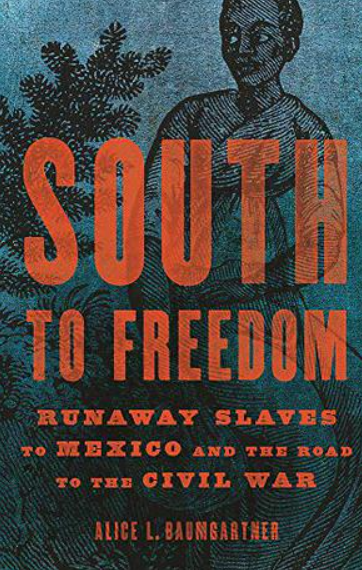(Detroit was a destination for runaway slaves – but some headed in the other direction – Richard Dalton)
A lucid exploration of a little-known aspect of the history of slavery in the U.S.
Capable study of the escaped slaves who fled from the U.S. to the Republic of Mexico before the Civil War.
Mexican law both “abolished slavery and freed all slaves who set foot on its soil,” making it an attractive if not widely used place of refuge. This proved a threat to bordering and nearby slave states, especially Texas and Louisiana. The former, as history professor Baumgartner writes at length, broke away from Mexico so that newcomers from the South could keep their slaves. While runaways to Mexico enjoyed freedom in the legal sense, notes the author, they had limited choices: They could enlist in the military to defend “a series of outposts that the Mexican government established to defend its northeastern frontier against foreign invaders and ‘barbarous’ Indians,” or they could become day laborers and indentured servants, which “sometimes amounted to slavery in all but name.”
By Baumgartner’s estimate, only some 3,000 to 5,000 enslaved people crossed the Mexican border, joining a small remnant population of Blacks, whose ancestors had been brought to Mexico as slaves in the 16th and 17th centuries, before the practice was formally outlawed. While some Mexicans, adhering to political ideals of liberty and property, resisted emancipation, it was finally made law in 1837, just after Texas’ independence. So threatening was this liberty that, Baumgartner writes, it provided the rationale for the U.S. annexation of Texas in 1845, which led to war with Mexico. Similarly, she attributes the earlier conquest of Spanish Florida to the fear that slaves would flee there as well. Baumgartner focuses on these big-picture developments while also telling the stories of some of those who found freedom in Mexico—e.g., a runaway who returned to Texas not because, as a newspaper put it, he “has a poor opinion of the country and laws,” but instead to guide his enslaved brothers across the border.
A lucid exploration of a little-known aspect of the history of slavery in the U.S.


